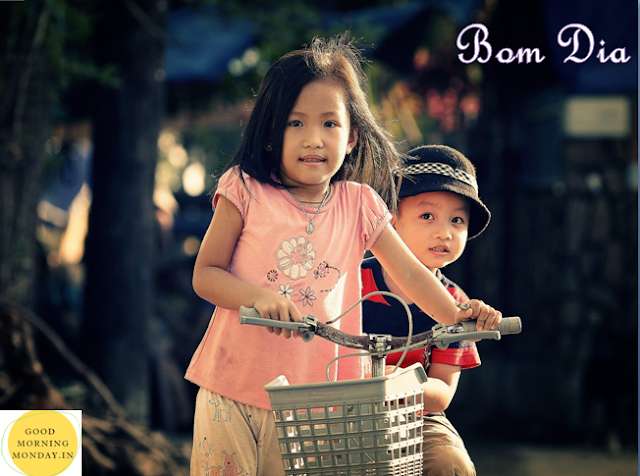How to say [ good morning ] in Portuguese Language ( Portuguese and Indo-European Language )
Peoples are searching for How to say [ good morning ] in Portuguese Language ( Portuguese and Indo-European Language ) Portuguese Language is a western Romance language of the Indo-European language family, originating in the Iberian Peninsula of Europe. According to report 274 millions native speakers in Portuguese language globally.
Portuguese is now the official language of several independent countries and regions: Angola, Brazil, Cape Verde, East Timor, Guinea Bissau, Macau, Mozambique, Portugal, & São Tomé and Príncipe while having co-official language status in East Timor, Equatorial Guinea, and Macau.
Portuguese is a Romance language that came from Galician-Portuguese, which was used in the medieval Kingdom of Galicia. It is one of the major languages of the world and an official language of the European Union, the Organization of American States, the African Union, and Lusophone countries.
Portuguese is a Romance language that developed over 2,000 years ago in the third century BCE when the Romans arrived at the Iberian Peninsula, a European peninsula primarily comprised of modern-day Portugal and Spain.
The Portuguese language developed in the Western Iberian Peninsula from Latin spoken by Roman soldiers and colonists starting in the 3rd century BC.
Os povos estão à procura de Como dizer [ bom dia ] em Língua Portuguesa ( Português e Língua Indo-Europeia ) A Língua Portuguesa é uma língua românica ocidental da família das línguas indo-europeias, originária da Península Ibérica da Europa. Segundo relatório 274 milhões de falantes nativos da língua portuguesa em todo o mundo.
O português é agora a língua oficial de vários países e regiões independentes: Angola, Brasil, Cabo Verde, Timor Leste, Guiné Bissau, Macau, Moçambique, Portugal e São Tomé e Príncipe, tendo o estatuto de língua co-oficial em Timor Leste, Guiné Equatorial , e Macau.
O português é uma língua românica que veio do galego-português, que foi usada no reino medieval da Galiza. É uma das principais línguas do mundo e uma língua oficial da União Europeia, da Organização dos Estados Americanos, da União Africana e dos países lusófonos.
O português é uma língua românica que se desenvolveu há mais de 2.000 anos no século III aC, quando os romanos chegaram à Península Ibérica, uma península européia composta principalmente por Portugal e Espanha modernos.
A língua portuguesa desenvolveu-se na Península Ibérica Ocidental a partir do latim falado por soldados e colonos romanos a partir do século III aC.
Good = Bom
Morning = Manhã
Good Morning = Bom Dia
 |
| Good Morning Image In Portuguese Language |
FAQ about good morning in Portuguese Language
Q. How to say good morning in Portuguese language ?
- Bom Dia
Q. How to say good morning in Indo-European language ?
- Bom Dia
Q.How many native speakers in Portuguese language ?
- 274 millions native speakers in Portuguese language globally wide.
Q. Who created Portuguese language ?
- The Portuguese language developed in the Western Iberian Peninsula from Latin spoken by Roman soldiers and colonists starting in the 3rd century BC.
Q. What is the origin of Portuguese language ?
- The Portuguese language originated from Latin in the Western Iberian Peninsula. Roman soldiers and colonists introduced Latin in 216 BCE. The language extended to other regions by Roman soldiers, settlers, and merchants.
FAQ sobre bom dia em língua portuguesa
P. Como dizer bom dia em português ?
- Bom Dia
P. Como dizer bom dia em idioma indo-europeu ?
- Bom Dia
P. Quantos falantes nativos da língua portuguesa ?
- 274 milhões de falantes nativos da língua portuguesa em todo o mundo.
P. Quem criou a língua portuguesa ?
- A língua portuguesa desenvolveu-se na Península Ibérica Ocidental a partir do latim falado por soldados e colonos romanos a partir do século III aC.
P. Qual é a origem da língua portuguesa ?
- A língua portuguesa originou-se do latim na Península Ibérica Ocidental. Soldados e colonos romanos introduziram o latim em 216 aC. A língua se estendeu a outras regiões por soldados romanos, colonos e comerciantes.

Post a Comment